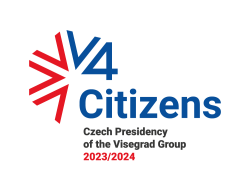
| Thu | Fri | Sat | Sun | Mon |
|---|---|---|---|---|
| 23 | 26 | 30 | 26 | 22 |
| Thu | Fri | Sat | Sun | Mon |
|---|---|---|---|---|
| 27 | 28 | 34 | 28 | 27 |
| Thu | Fri | Sat | Sun | Mon |
|---|---|---|---|---|
| 27 | 29 | 33 | 34 | 28 |
| Thu | Fri | Sat | Sun | Mon |
|---|---|---|---|---|
| 28 | 30 | 33 | 36 | 30 |
Joint Declaration of V4 Interior Ministers
Budapest, 5 October 2017
We, the Ministers of Interior from the Visegrad Group, met in Budapest on 5 October to review and asses the effect of EU-level debates concerning migration and border management on the V4 countries.
We agree that migration policies should take into account the changing nature of migration as a phenomenon and its challenges to security.
We believe that the key is to regain complete control over the external borders of the European Union, through which the migratory pressure on Europe can be reduced. The past years have shown that as a result of coordinated national actions, the security of our borders can be upheld and migratory flows can be mitigated.
We, the countries of the Visegrad Group consider that the mandatory allocation of asylum seekers to Member States does not provide a proper and long-term solution to the migration crisis; it only constitutes a strong pull factor and generates secondary movements. For these reasons, the countries of the V4 are not able to support the proposal of an automatic and mandatory relocation mechanism.
It is our common position concerning the reform of the Common European Asylum System that an asylum system to be developed should be able to flexibly respond to the challenges of the 21st century, and to provide protection to the ones in need of international protection, while acts resolutely against abuses of asylum system. We must avoid creating procedure that would only mean an additional pull factor. The solution lies in the mitigation and management of the root causes of crisis situations in the countries of origin.
We support projects and initiatives that aim at supporting communities in regions of origin and prevent migrants from making dangerous journeys and to convince them to improve their quality of life at home. In this context, we would like to recall and reaffirm our Visegrad-level offerings to Italy that we made in our Prime Ministers’ letter of 19 July [PDF].
Within the framework of the cooperation, we strive to establish and enforce common positions in the field of migration policy that also recognize the interests of our countries.
We agreed that while respecting our international obligations, particular emphasis should be placed on the fight against illegal migration, terrorism, serious crime, and also on the protection of external borders, as well as on action against threats to public order and internal security. In the light of the above, we consider important all measures that can contribute to enhancing the internal security of the European Union and the Schengen area.
For this purpose, we monitor and actively participate in the debate on the Commission's proposal on the amendment of the Schengen Borders Code concerning the temporary restoration of border controls at internal borders.
We actively support the activities of the European Border and Coast Guard Agency, in particular with regard to the implementation of joint operations with third countries. We are committed to providing additional assistance on a bilateral basis to third countries. In the latter case, in order to ensure the efficient and targeted use of resources and to avoid duplication, we are conducting preliminary consultations through V4 communication channels (especially the Migration Crisis Response Mechanism) to ensure that subsidies are used rationally and cost-effectively.
We agreed that the exchange of information handled by law enforcement agencies is one of the most important tools of the fight against terrorism and organized crime. To this end, we reaffirmed our intentions to work together and strengthen our cooperation in order to improve information exchange and to harmonize our positions.
We will make further efforts in the fight against terrorism, and we have agreed to look for opportunities for joint activities and actions, and to support the sharing of best practices and the continuous exchange of experiences between our countries, in particular regarding the exchange of passenger name records.
Finally, we are convinced that through its efforts, the Visegrad Group has a strong role in EU fora. We express our intention to continue the effective cooperation on issues of common interest within the framework of the V4 in the achievement of positive developments at the European level.







